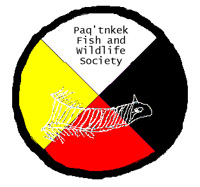In collaboration with the Canada Research Chair in Indigenous Peoples and Sustainable Communities, this program of research investigates Mi’kmaq strategies to implement treaty rights and relations and expand social capital.
The analytical focus examines the creative processes of consultation and the plans the Mi’kmaq decide upon to establish and maintain sustainable community growth. The primary research question delineates how these processes are configured within Mi’kmaq value systems and how they are translated into legitimate actions within Mi’kmaq ecological knowledge, governance, jurisprudence and sociocultural accountability between the legislature and Indigenous communities. The analytical framework examines emerging processes of heightened Mi’kmaq cultural productivity as people construct means for identifying with or against elements of culture, which translate into ideas and practices of social regulation and the challenges of implementing communal rights in diverse communities.
[This research works] with the Mi’kmaq concept of Netukilimk through the study of Mi’kmaq knowledge, culture, capacity and empowerment strategies, particularly as the Mi’kmaq take control over the economic, political and juridical aspects of hunting and fishing.
The research offers the prospect of contributing to an understanding of relations with and respect for ecosystems that will assist in developing new approaches to achieving sustainable ecosystem stewardship and natural resource use. The Mi’kmaq worldviews and practices, as encapsulated in the Netukilimk concept offer important alternatives for resource management. Netukilimk embodies Mi’kmaq methods of resource harvesting without jeopardizing the integrity, diversity or productivity of their environment (NCNS 1993).
Thus, a revitalization of Netukilimk, coupled with consensus seeking processes in Mi’kmaq rights initiatives, marks for the Mi’kmaq a critical cultural touchstone for framing and articulating resource management within their communities and partnerships. This research is centered on community empowerment, sustainable development, and capacity building (Battiste and Henderson 2000, Blaser, Feit, McRae 2004, Menzies 2006).
Key goals are to:
-
Deepen understanding of Mi’kmaq relations with and use of K’at (eel), Tia’m (moose), Jakej (lobster) and other key natural resources throughout Nova Scotia;
-
Further develop and demonstrate a results rich approach to organizing and conducting social research that builds on a respects Mi’kmaq determined consultative and inclusive processes;
-
Further develop stand-alone research capcity within the Mi’kmaq First Nation;
-
Provide Mi’kmaq students and researchers with the capacity-building opportunities through participation in all aspects of the research process;
-
Explore the Mi’kmaq concept of Netukulimk as a cornerstone principle in a new approach to natural resources and their use that begins respectful ecosystem stewardship;
-
Foster dialogue between Mi’kmaq and non-native natural resource users and managers;
-
Contibute to the linkage between research and treaty entitlement processes; and
-
Develop learning modules for inclusion in elementary, high school and university curricula.
